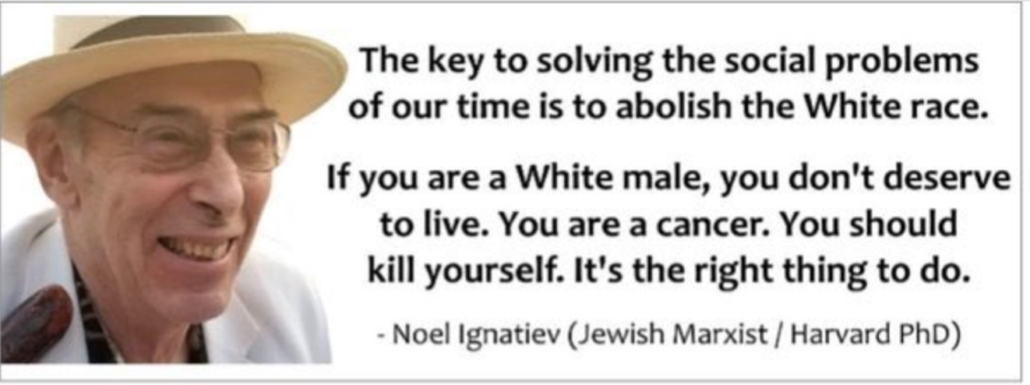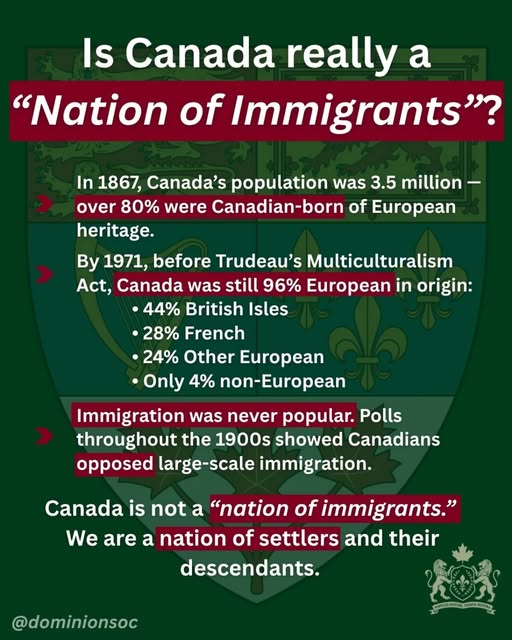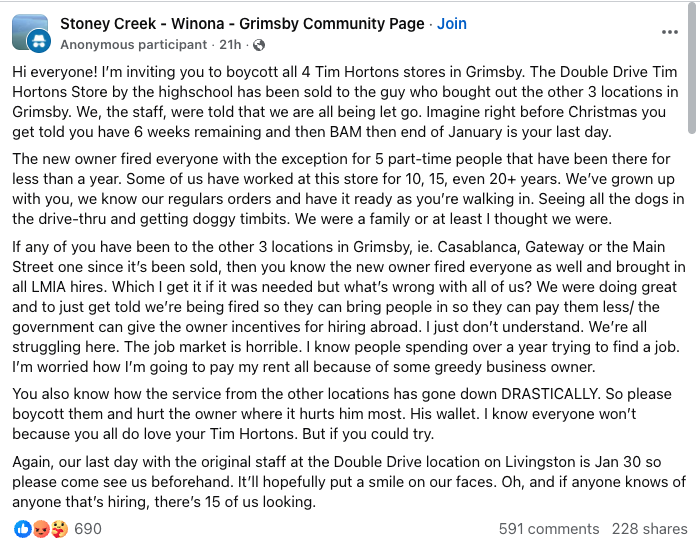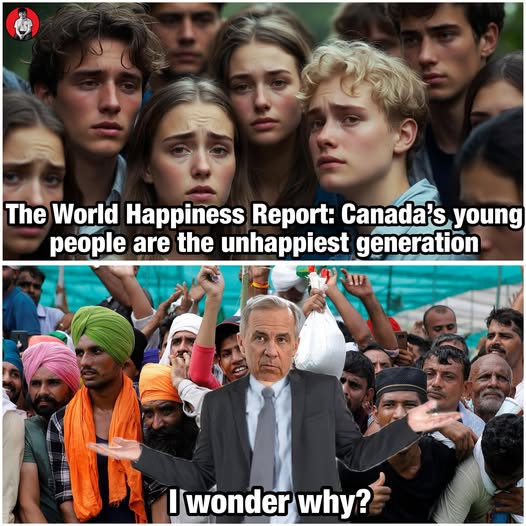THE FAKE RESIDENTIAL SCHOOL GENOCIDE
December 27, 2025/4 Comments/in Featured Articles/by Pierre Simon

Time to Abolish the White Race
Those who are capable of tyranny are capable of perjury to sustain it.
Lysander Spooner
Did you know that the children of the nomadic Siberian Nenet tribe are sent to boarding school for nine months of the year to learn the basics of civilization? Many of them don’t tolerate it and literally freeze to death trying to return to the tundra to rejoin their tribe. It’s hard to change worlds, to go from freedom to confinement from one day to the next. We sure know something about that, don’t we?
Does this mean they are coerced? Of course not. It’s not the evil civilized “superior” White people forcing them. Like all responsible parents, Nenet parents who want the best for their children, know very well that their kids need to learn how to live in the modern world.
After their education which lasts several years, most of these kids, in fact, do not want to return to the tundra. The most gifted become lawyers, doctors, or researchers, the others find a job of some kind and integrate themselves into the society that raised them. Nobody forces them. They themselves choose where they want to live and how. And that’s a good thing.
Russians have great respect for the hundreds of ethnic groups that have lived on their territory since time immemorial. Contrary to woke liberals such as Canadian prime minister Justin Trudeau who are constantly trying to inflame minorities against their own race, they want things to go well and everyone to be happy.
And so did the missionaries who taught the Amerindians in residential schools. By vocation, they were also sincerely concerned about their students who just like the Nenets were to be civilized for their own good. The same goes for Canadian aboriginal parents, who were as concerned about their children’s welfare as the Nenets and the missionaries. None of these children were forced at gunpoint to do so like all main stream media claimed. [1] To pretend otherwise is a form of racism.
Since their families lived in the wilderness, sometimes far from the boarding schools, some of those students could not be sent back to their families on weekends as they would today. There were no roads or buses. In order to adapt them as well as possible, it made more sense to keep these children in boarding schools for several months. That being said 2/3 of the kids who attended residential schools were day students that went home every day to those parents who lived on the reserve at a walking distance from the schools. Moreover, half of all Amerindian children never went to school.[2]
Yet, in spite of this long period far from their parents, a majority of students such as the prominent Aboriginal playwright Tomson Highway and the late band chief Cece Hodgson-McCauley greatly enjoyed their time at their schools. “Nine of the happiest years of my life were spent at that school… some people have been bad-mouthing residential schools for money,” the chief told The Huffington Post and CBC.[3]
Fortunately, the thesis of systematic, large-scale abuse and mistreatment has finally fallen by the wayside.[4] The mass grave of 215 bodies allegedly discovered near a residential school in Kamloops, British Columbia, with laser imaging and telemetry techniques, is just one more lie to be added to the false reality that the controlled globalist media such as the New York Times is constantly imposing on us by repetition.[5] “Only soil anomalies — not ‘remains, bodies, or graves’ — had been detected by the inexperienced radar operator” writes journalist Brian Giesbrecht. “Only excavation can conclusively prove that graves exist. However, the Tk’emlups Indian band that made the claim refused to excavate and to release the radar operator’s report.”[6]
In fact, “after two years of horror stories about alleged mass graves of aboriginal children in Canada’s residential schools,” writes journalist Dana Kennedy, “a series of recent digs at suspected sites have revealed no human remains.”[7] Jacques Rouillard, professor emeritus in the history department at the Université de Montréal, told the New York Post: “I don’t like to use the word hoax because it’s too strong, but there are too many falsehoods circulating on this issue without any proof.”[8]
Graves where children who died of natural causes were indeed found around residential schools, but there was no Native American genocide. At the time of the alleged mass graves, the infant mortality rate was close to 40%. Some boarding schools were overcrowded and hygiene was sometimes poor. As Amerindians were less resistant to disease than Europeans, many succumbed to malnutrition, tuberculosis, typhus, influenza (Spanish Flew) and several other infectious diseases. There were no antibiotics to treat them. As some of the parents lived far away in the woods, there was no easy way to warn them, and the bodies had to be properly buried to avoid epidemics. Things eventually improved once the nutrition and living conditions of the Aboriginals changed for the better thanks to the care of the missionaries, the government, and the indigenous staff who worked in these residential schools.
There may have been isolated cases of mistreatment, as is the case in all institutions of this kind, but there is no trace of forcible transfer of a population, persecution against an identifiable group, enforced disappearance of persons, apartheid, and general inhumane acts of cruelty, torture, hangings, medical experimentation, or systematic rape and sexual slavery.[9] In the end, there was no reason to burn churches all across Canada, as some Aboriginals and the social justice left have done in revenge.
This is not only a story about indigenous people telling lies to obtain reparations and social benefits, but a story about people of all denominations losing their minds because of a false consensus effect.[10] A prominent group of lawyers, who called for an International Criminal Court investigation of anyone involved in Residential Schools, the Vatican, incompetent government officials, the social justice left, politized RCMP, subsidized government media, “missionary” scholars who use their research to serve a cause, and the public always ready to believe the first wolf disguised as sheep readily jumped on the bandwagon of lies in a frenzy tantamount to hysteria as if they had been prepared or groomed beforehand by decades of anti-Christian and anti-White propaganda.
Anti-Catholic and Anti-White Propaganda
It is very much Hollywood that prepared the ground for what happened in Canada. In films on television and in the movies, Christians, especially Catholics, are most often portrayed as bigoted, narrow-minded, and intolerant, even as rapists or murderers. As for the Catholic clergy, they are most often portrayed as a bunch of sadists and pedophiles.[11]
Whites by association are also systematically targeted. As a matter of fact, anti-White propaganda has been a fixture of Hollywood movies as far back as the early 50’s. As noted by Frank L. Brittons in his 1952 booklet Behind communism, “Hollywood has now committed itself to producing at least four race pictures annually. Most of these pictures are destined beforehand to lose money, and are made purely for propaganda purposes. Some are so inflammatory they cannot be shown in certain sections of the United States. […] While minorities are systematically taught to think and act in terms of race, Whites are instilled with a sense of guilt for the ‘wrongs’ committed against minorities; they are taught that race consciousness is wrong and a manifestation of bigotry, and that all races being equal, they should discard the concept of race.”[12]
This massive ongoing propaganda machine has only one goal in mind: to sully Christians, demonize the White race and turn against it not only the minority groups, but also the majority White population and its leaders, who by dint of being told in schools and on theater, TV, and computer screens, almost 24/7, that their race is rotten, hate it more than the minorities themselves.[13]
As Mark Weber of the Institute for Historical Review says, “Even many of those who readily acknowledge the tremendous influence of American film and television seem not to fully comprehend the formidable scope of the power behind Hollywood, or the outlook and agenda of those who wield that power…”[14]
The Myth of the Noble Savage
You’ve probably seen the film, Dances with Wolves, with the handsome Kevin Costner, but did you know it’s pure fiction? Before their evangelization and education in boarding schools by missionaries, Native Americans were not noble, good, kind, or innocent as portrayed in the movie. The idea of the peaceful and noble savage is pure bunk.[15] They were savages of unprecedented cruelty[16]; primitives who practiced cannibalism, polygamy, and slavery; warriors who spent their time fighting over territory.[17] They knew nothing of writing, agriculture, the wheel, the sail, or the pulley – inventions that were centuries old. The term “First Nations’ is a misnomer as they had no idea of what a nation is. There was no unity between these tribes. Only conflict and abject cruelty. Hollywood glorifies them only to smear Christians and Whites.
According to prolific New Zealand author journalist Kerry Bolton, there are two fundamental objectives to this propaganda: 1. Disparage European colonial empires with a concomitant idealization of ex-colonial people, and 2. Glorify the national liberation struggles of indigenous people. This emotion-laden propaganda is given the scholarly name of post-modernism. As Kerry Bolton says, these ideological studies are “a broad front for the theoretical deconstruction of Western Civilization, and is part and parcel of a neo-Marxian movement in academia which includes gender studies […] These studies are intended to serve political agendas rather than the ‘truth’ per se.” [18] According to Bolton,
The tendency is for the European peoples, or rather governments in their name, to forever apologize for the alleged wrongdoings of the colonial era. This universal guilt complex is transposed to the present so that reparations can be demanded in perpetuity on the basis of collective hereditary guilt. Hence European peoples will be forever judged guilty for the alleged crimes of their colonial oppressor forebearers.[19]
In other words, claims of mass deaths, unmarked graves, and “disappearances” in Residential Schools are exaggerated or fabricated for political gain, financial compensation, or to advance the anti-colonial agendas that are used to guilt-trip Whites. Indigenous lawyer Kimberley Murray is often targeted in this discourse as a key figure “pushing” these claims due to her Truth and Reconciliation Commission Report (TRC) and Interlocutor roles.[20]
Grave Error
The former Globalist Pope Francis, after a visit to Canada in July 2022, apologized for what happened at Roman Catholic and other Christian Church mission schools. He did not use the word “genocide” but he did say it was a “Holocaust,”[21] although there is absolutely no proof of such a thing as shown conclusively by editors C.P. Champion and Tom Flanagan in their landmark book Grave Error forwarded by Conrad Black. [22] Was the Pope duped by the fake narratives promoted by subsidized media and the TRC report on the alleged Residential School genocide is an open question? This report is everything but a truthful document. It is filled with totally false assertions and gross exaggerations such as:
–Thousands of missing children went away to residential schools and were never heard of again.
–These missing children are buried in unmarked graves underneath or around mission churches and schools.
–Many of these missing children were murdered by school personnel after being subjected to physical and sexual abuse, even outright torture.
- –The carnage is appropriately defined as genocide.
- –Many human remains have already been located by ground-penetrating radar, and many more will be found as government-funded research progresses.
- –Most Indian children attended residential schools.
- –Those who attended residential schools did not go voluntarily but were compelled to attend by federal policy and enforcement.
- –Attendance at residential school has traumatized Indigenous people, creating social pathologies that descend across generations.
- –Residential schools destroyed Indigenous languages and culture.[23]
“It is striking that every single one of the 94 recommendations […] of the TRC is a demand for the federal government, or occasionally, some other organization such as the Catholic Church, to provide some benefits to First Nations,” note C.P. Chapman and Tom Flanagan, the editors of the above-mentioned book, Grave Error.[24]
No solutions are suggested for the many social pathologies such as violence against women, heavy consumption of tobacco, drugs, and alcohol and lack of family support for education, which affect First Nations. Instead of looking for biological causes to these problems such as the average low IQ of the population, the only factor responsible cannot possibly be anything other than the harm done by the Residential schools, what the TRC calls “cultural genocide.”
The Criminalization of Denial
Leah Gazan, the NDP Member of the Canadian Parliament for Winnipeg Centre, has been a leading figure in the recognition of the Canadian Indian Residential School system as an act of genocide. She has both Jewish and Indigenous ancestry; her advocacy for social justice is informed by the fact that her father was a holocaust survivor and her mother is a member of the Wood Mountain Lakota Nation. Mrs. Gazan has introduced legislation into the House of Commons to criminalize denial of the residential school genocide. Here is a quote from one of her interventions made in the House of Commons on October 31, 2025, during the reintroduction (first reading) of her private member’s bill aimed at amending the Criminal Code to address residential school denialism as a form of promoting hatred against Indigenous peoples:
Today, I will be reintroducing my bill to recognize Residential School denialism as a form of inciting hate. You know, it’s been over a decade since the release of the Truth and Reconciliation Report, and since that time we have seen since the discovery of unmarked graves an increase in denialism about what occurred in the Residential Schools. This is horrific particularly because all members of parliament unanimously supported my motion in 2022 to recognize what has happened in residential schools as an act of genocide, the first genocide that was recognized within Canadian borders at a time, where we are looking once again at building a nation on the backs of indigenous peoples around our lands, territories, and resources in the name of national interests in violation of constitutionally enshrined indigenous rights. If this government is serious about reconciling with indigenous people, it must ensure the protection of survivors. It was the story of survivors and our family that put us on a path towards reconciliation. So, I’m calling on the government to do the right thing. To take on this bill, to support this bill and truly honor the gift that residential school survivors provided to Canada.
The accusation of denialism is a powerful rhetorical weapon because of its association with the Holocaust. As C.P. Champion and Tom Flanagan state in their sequel book to Grave Error, Dead Wrong: How Canada Got the Residential School Story So Wrong, “Labelling a certain position on residential schools brings in the powerful emotions associated with anti-Semitism and the Holocaust without having to make a logical and factual case.”[25] In fact, this reflexive mantra is used to stamp out criticism of any argument that contradicts the gimmicks that are used to scare us such as the fake climate urgency and the planned Covid pandemic or to make us feel guilty such as slavery, colonialism, the Holocaust, etc.
Critical Theory

As a result of these lies, Canada has officially recognized that genocide did take place. This admission of guilt based on thin air is in effect another giant step on the way to demonizing and abolishing the White race and the nations and civilization it created. “Everything today,” writes James Pew, one of the authors of Grave Error, “is viewed through the cynical lens of radical critical theory. […] It asserts that the relatively peaceful and pluralistic first-world societies of the West are actually oppressive regimes upholding the white patriarchal power structure left over from colonialism, and serving the interests of public enemy number one: White men.”[26]
The Poison of Postmodernism
It is postmodernists like the Jewish philosopher Jacques Derrida and the homosexual child rapist Michel Foucault[27] who invented the idea, roundly denounced as an intellectual imposture by the physicists Alain Sokal and Jean Bricmont[28] that reality does not exist. Their philosophy is quite simple: it is enough to believe something for it to be true. Everything is subject to interpretation, everything is relative.[29], [30]
In their world, you can be whoever you want, a male, a female, half-and-half, whatever suits your fancy. Everyone has the same abilities. Equality in everything is the rule. So, women and men are interchangeable in all areas, including pregnancy. There is no such thing as race and all cultures are equal. For these deniers of reality, behaviours and abilities have no genetic basis.[31] It is so simply because you decide that it is so; so, there is no need to prove anything with objective arguments, objectivity does not exist anyway.[32]
And if it doesn’t fit with reality, they manage to make it fit by lowering the selection criteria, by favouring through positive discrimination (affirmative action) the less qualified over the more qualified. In this tyranny of “your opinion is as good as mine,” men who are women by choice become female weightlifting champions, a plant nutrient such as CO2 becomes a poison, soil anomalies become mass graves, the discovery of a potentially unmarked burial site becomes the discovery of an unmarked burial site containing 215 children secretly killed by priests who forced six-year-olds to did the graves.
All you have to do is want it, et voilà, with a wave of a magic wand your wildest desires become a reality that no one can contest on pain of reprisals, as this kind of policy can only work at gunpoint. This is behaviour by culture vs. behaviour by nature, our real vocation enshrined in our DNA. That’s why all leftist utopias finish in bloodshed, they’re in conflict with human nature.
In short, as Pope Benedict XVI says: “Relativism appears to be the only admissible attitude in our present age, a dictatorship of relativism that recognizes nothing as definitive and that gives as its ultimate measure only its own ego and its desires.”[33] In this reign of subtle, perverse terror veiled by good intentions and noble sentiments, the very concepts of facts and knowledge are denounced as hate speech and racism. Truth no longer has any meaning. Minority opinion takes precedence over that of the majority. Freedom of expression is stifled. Democracy is nothing more than an empty word. Threats of dismissal, vandalism, intimidation, banking exclusion, and personal attacks are the rules of engagement in this war of subjectivity against common sense, logic, and objectivity.
The scourge of relativism, in other words, boils down to an excessive, dogmatic, or performative ideology that prioritizes identity politics, victimhood hierarchies, cancel culture, and enforced conformity over merit, free speech, and individual responsibility; it divides society into oppressors and oppressed based on group identities and leads to intolerance or reverse discrimination particularly towards Christians and White people, who are seen as the most important obstacles to progress that must be erased from the surface of the Earth.
Global Utopia
Don’t be fooled, though, progress has nothing to do with it. The decolonizing social justice left and the government puppets that are involved in this destruction of Christianity and the White race are the useful idiots of international capitalism that is leading the world down a path to planetary servitude.
The ultimate goal of the banker-merchants who call the shots in the background is to create a worldwide collectivist society of consumers easy to manipulate and control;[34] a society where the notion of belonging to a country will be obsolete; a society where no one will have any identity, other than that of consumer. This future is described as a “global utopia” for the ruling elite, a nightmare for the millions of rootless, acculturated post-national nomads.[35]
In this post-modern drama that’s unfolding in front of our very eyes, the “worker bees” will be able to move unhindered to wherever they are needed. Trade and all other transactions will be greatly facilitated by the elimination of all barriers, not only physical, but also psychological and social.
The fake residential school genocide is just one step in that direction.
[1] Editors C. P. Champion and Tom Flanagan, preface by Conrad Black, Grave Error: How the Media Misled Us (and the Truth about Residential Schools), True North and Dorchester Books, 2023.
[2] Lifesitenews staff, “Rescued from the memory hole: Some First Nations people loved their residential schools,” June 28, 2021.
[3] McRAE: Is the real truth not bad enough? Western Standard, December 15, 2022.
[4] C P Champion and Tom Flanagan, work cited.
[5] Gabrielle Fonrouge, Mass grave with 215 Indigenous kids found on former school grounds in Canada, New York Post, May 28, 2021.
[6] Brian Giesbrecht, ‘Lawyers Should Apologize for False Accusations,’ Editors C. P. Champion and Tom Flanagan, sequel to Grave Error, Dead Wrong: How Canada Got the Residential School Story So Wrong, True North and Dorchester Books, 2025, p. 142.
[7] Dana Kennedy, “No Human Remains Found 2 Years After Claims of ‘Mass Graves’ in Canada,” New York Post, August 31, 2023.
[8] Ibid.
[9] Jared Taylor, Kamloops: Greatest Hate Hoax Ever? YouTube, January 29, 2022.
[10] AI GROK definition on X: The false consensus effect is a cognitive bias in psychology where people tend to overestimate the extent to which others share their own opinions, beliefs, behaviors, or preferences. In brief: We assume our views are more common than they actually are. This phenomenon was first systematically studied by Lee Ross and colleagues in 1977, and it’s supported by extensive research showing it’s a pervasive egocentric bias in social perception.
[11] Hervé Ryssen, Satan in Hollywood, The Barnes Review, also on the Internet Archive, 2016.
[12] Frank L. Britton, Behind Communism, River Crest Publishing, 2021 (first published in 1952), pp 116-118.
[13] Arthur Kempt, The War Against Whites. The Psychology Behind the Anti-White Hatred Sweeping the West, Ostara Publications, 2020, p. 82.
[14] Mark Weber, Hollywood’s Agenda, and the Power Behind It, Institute for Historical Review, Feb. 6, 2013.
[15] Lawrence H. Keeley, War before Civilization, Oxford University Press, Nov. 1 1997.
[16] Adam Stueck, “A Place Under Heaven: Amerindian Torture and Cultural Violence in Colonial New France, 1609-1729″ (2012). Dissertations (2009 -). Paper 174. http://epublications.marquette.edu/dissertations_mu/174
[17] Thomas Goodrich, Scalp Dance. Indian Warfare on the High Plains, 1865-1879, Stackpole Books, 1996.
[18] Kerry Bolton, PhD, The Parihaka Cult, Black House Publishing, 2012.
[19] Ibid, p. 19.
[20] Michelle Stirling, “Open letter,” Dead Wrong: How Canada Got the Residential School Story So Wrong, True North, 2025, pp 218 to 230.
[21] “Pope says genocide of Aboriginal children in Canadian mission schools,” epicnews, July 30, 2022.
[22] C.P. Champion and Tom Flanagan, Grave Error.[22] How the Media Misled us (and the Truth about Residential schools), Forward by Conrad Black, True North, 2023; there is a sequel to this book, Dead Wrong: How Canada Got the Residential School Story So Wrong, True North, 2025; see also a controversial documentary on the “worst lie in Canadian history,” Making a Killing: Reconciliation, Genocide, and Plunder in Canada, released December 2, 2025.
[23] C.P. Champion and Tom Flanagan, Grave Error, p. 330.
[24] Ibid., p. 329.
[25] Editors C.P. Champion and Tom Flanagan, Dead Wrong: How Canada Got the Residential School Story So Wrong, True North, 2025, chapter 7, p. 18.
[26] James Pew, “Canada’s descent into collective guilt,” Grave Error by Editors C.P. Champion and Tom Flanagan, p. 160.
[27] Matthew Campbell, “French Philosopher Michel Foucault ‘Abused Boys in Tunisia,’” The Sunday Times, March 28, 2021.
[28] Alain D. Sokal and Jean Bricmont, Impostures intellectuelles, Odile Jacob, 1997.
[29] Stephen R. C. Hicks, Explaining Postmodernism: Skepticism and Socialism from Rousseau to Foucault, Ockam’s Razor Publishing, 2018.
[30] Noretta Koertge, A House Built on Sand: Exposing Postmodernist Myths About Science, Oxford University Press, 1998.
[31] Robert Plomin, John Defries, Gerald Mcclearn, and Michael Rutter, Des gènes au comportement : Introduction à la génétique comportementale, Université de Boeck, 1999.
[32] David Ruse, Fake Science: Exposing the Left’s Skewed Statistics, Fuzzy Facts, and Doggy Data, Regnery Publishing, 2017
[33] Greg Kandra, « Benoît XVI : “Le relativisme est un poison” », Aleteia, January 31, 2017.
[34] Kerry Bolton, PhD, Revolution from Above, Arktos, 2011; see also by the same author, The Banking Swindle. Money Creation and the State, Black House Publishing, 2017. French jurist Valérie Bugault, PhD has also written extensively on this subject, Demain l’aube… le renouveau, Sigest, 2023; lastly but not least: Stephen Mitford Goodson, A History of Central Banking and the Enslavement of Humanity, Black House Publishing Ltd, 4th Edition, 2019.
[35] Gearóid Ó Colmáin, “Rothschild’s ‘Slaughter Ships.’ Coercive Engineered Migration: Zionism’s War on Europe (Part 4 of 11),” Dissident Voice, 2016. Cited by Scott Howard, The Open Society Playbook, Antelope Hill Publishing, p. 223.









